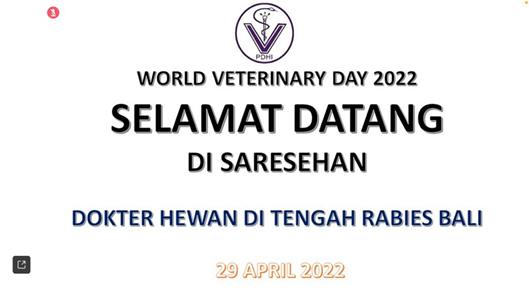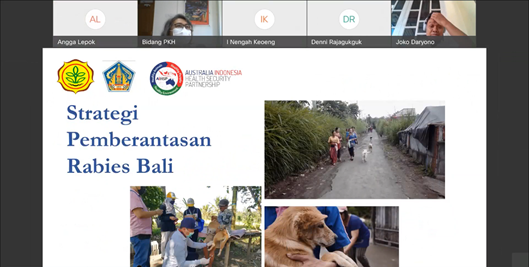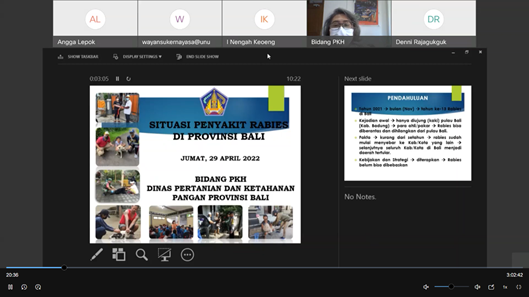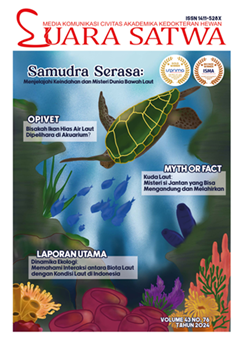Celebrating World Veterinary Day 2022 Teaching Veterinary Hospital, Faculty of Veterinary Medicine, University of Udayana Together with the Indonesian Veterinary Association Held a Rabies Workshop in Bali
Today (2022) is the 14th year of the rabies outbreak in Bali. Bali, which used to be a rabies-free area, has been recorded as a rabies-infected area since 2008. From 2022 to April 28, there were 210 positive cases of rabies dogs with distribution in 129 villages. This was conveyed by Anak Agung Istri Inten Wiradewi SPt, M.Si as the head of the Animal Husbandry and Health Division, the Department of Agriculture and food security in the province of Bali at a workshop with the theme of finding solutions for handling the rabies outbreak in Bali, which was initiated by the Bali Branch of the Indonesian Veterinary Association in collaboration with with the Udayana Teaching Veterinary Hospital and the Australia Indonesia Health Security Partnership (AIHSP). The workshop, which was held on Wednesday 29 April 2022, was coupled with the celebration of World veterinary day 2022.

In his opening remarks, the Director of the Udayana Teaching Hospital, who is also the Head of PDHI Bali Branch, Prof. I Ketut Puja said that the problem of rabies is a serious problem. Not only serious in dogs but also in humans. In 2022, human cases have reached 5 people. Positive cases in dogs increased in April 2022 and even recorded as the highest case in the same month recorded in 2015. The government has implemented various control strategies but so far no significant results have been seen. Therefore, through this workshop, it is hoped that there will be new breakthroughs that can be recommended to the local government of Bali in order to realize a rabies-free Bali by 2030.
The Head of Animal Husbandry and Animal Health (AHAH) of the Bali Agriculture and Food Security Service said that the difficulty in eradicating rabies in Bali has been due to the fact that the entire dog population in Bali cannot be vaccinated. This is because the dog population in Bali is more than 61% of their lives strayed. Furthermore, it is said that public awareness, especially in responsible dog care, is still low. So that vaccination coverage cannot be done in total. Of course, with this low vaccination coverage, we haven't.

According to Drh Joko Daryono from the Australia Indonesia Health Security Partnership (AIHSP) said that the basic principles of effective disease control are planning with adaptive plans, controlling disease, limiting its spread using the SMART approach (specific, measurable, Achieveable, Relecant, timebound). And last but not least is community support at every level. Drh Joko also conveyed a new hope to increase vaccination coverage, namely through oral vaccines. Oral vaccines can be considered in the future as an alternative to vaccination for rabies. This was conveyed considering that the oral method of vaccination has been proven to be applied in various countries.

At the end of the workshop, it was recommended that eradicating rabies in Bali could be carried out through an activity-based approach to the official village or traditional village. Through the formation of rabies awareness cadres in each banjar, making parerem or village regulations related to rabies eradication. This approach is expected to be able to handle the entire existing dog population in a sustainable manner. In addition, it is necessary to consider revoking the status of the rabies outbreak so that anti-rabies vaccination in humans can be paid for. With this fee, it is hoped that public participation in disease eradication will be higher.




UDAYANA UNIVERSITY